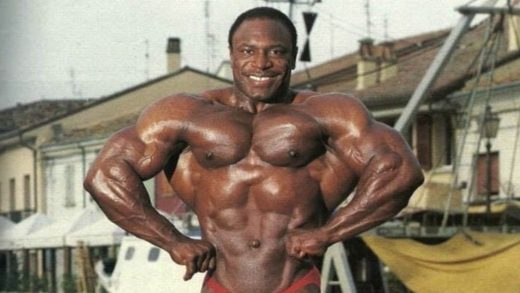:format(webp)/https://www.thestar.com/content/dam/thestar/entertainment/books/reviews/2023/02/03/salman-rushdies-new-novel-victory-city-is-a-tribute-to-the-power-of-words/victory_city_cover_image.jpg)
Salman Rushdie may well be unequalled among authors in his love of “grand narratives,” his favourite term for the foundational stories of nation, tribe and religion that give shape to human identities — if only for the sheer joy he takes in poking holes in them.
From his enduringly popular Booker Prize winner “Midnight’s Children” in 1981 through 2015’s “Two Years Eight Months and Twenty-Eight Nights,” Rushdie’s novels have combined sophisticated critiques of multiculturalism and its ills with tweaking (when not flat-out rewriting) those grand narratives. In that regard, a fan might think the rise and fall of India’s Vijayanagar Empire, which flourished from the 14th to 17th centuries, was tailor-made for Rushdie. And they wouldn’t be wrong.
“Victory City” opens after a nameless battle leads to an equally forgotten kingdom’s demise. Nine-year-old Pampa watches in frozen horror as her mother follows a long line of grieving women into a mass ritual suicide by fire. Pampa, in a novel with powerful feminist undertones, swears she will never follow her mother into self-immolation, real or metaphorical, in order to join “dead men in the afterworld.”
At that moment the goddess Parvati — known as Pampa in that part of India — enters into the child, infusing her with long life, extraordinary powers that include clairvoyance and a mission to improve the lot of women in her world. That she eventually accomplishes, just as the real-life Vijayanagar did, although not before surviving years of sexual abuse by the officially ascetic sage who educates her. When Pampa later encounters the two brothers who founded the empire in history and in Rushdie’s fiction, she tells them that if they plant their vegetable seeds at the site where her mother died, Victory City — the literal meaning of Vijayanagar — will arise overnight.
With the bustling city come to life, the story veers swiftly from the mythic (with a dash of cynicism) to a chaotic and often funny human scale, as Pampa’s life interacts with the realm’s highs and ever deeper lows.
Immersively described, Vijayanagar is redolent with colours and smells, some enticing (cloves, turmeric, cardamom) and some far from it: all her long life Pampa “carries the scent of her mother’s burning flesh in her nostrils.”
There are sly critiques of colonialism (pink monkeys take over a forest by dividing and conquering the brown monkeys already there), very Rushdie-esque takes on the allure of foreign visitors, and continual self-mockery aimed at storytellers and their dubious honesty. And something new, as the 75-year-old author aims more than a few (mostly) amusing barbs at old age. That reaches its apex — or nadir, depending on perspective — when an elderly ruler has to climb down from his war elephant mid-battle in order to urinate, a tactical error, so to speak, that leads directly to the story’s second beheaded king.
Rushdie’s 15th novel is a compulsively readable take on the plain fact that human life has a tragic arc — consider how it ends for all of us — and a richly comedic texture along the way.
It’s also a matter of life imitating art — Rushdie wrote this consideration of mortality before a knife-wielding attacker almost killed him last August. Even so, “Victory City” is a wonderful before-the-fact response to violent nihilism. “The best possible response to tragedy is comedy, black comedy,” Rushdie remarked in a 2015 interview, an approach on full and dazzling display here.
The novel is also a tribute to the power of words. The royal brothers may have planted the seeds that made their capital and its inhabitants rise, but their subjects are aimless, helpless and as emotionally stable as toddlers until Pampa comes at night and whispers, into their sleeping ears, their history and identity, personal and collective.
More than two centuries later, after decades of seeing her own children (and their children) pass away before her, Pampa is as physically and spiritually exhausted as the empire she founded. Asked about her secret desires, she replies, “My time of desiring is over. Now everything I want is in my words, and the words are all I need.”
Those words were in the form of a traditional Indian epic reminiscent of the “Ramayana,” in which Pampa told the tale of her life and the way her imperial creation — her own grand narrative — had slipped out of her control.
“The Jayaparajaya (Victory and Defeat),” hidden away as the city fell and found only recently by the unnamed narrator, actually slips right out of history altogether for 450 years. Imaginary or real events, it makes no difference — as Pampa says, “words are the only victors” and nothing lives on without them.
Like Pampa’s scribe who cannot unhear, much as she’d like to, the ever accurate dire prophesies dictated by the aged Pampa, it may be impossible to forget while reading Rushdie’s tale how close he came to death in August — or that the novel has elements of eerie prescience.
Pampa and Rushdie both spin magic worlds out of words; she is blinded before her death and Rushdie did lose an eye in the attack. An elegy on a writer’s art and purpose, “Victory City” is a great victory for Rushdie.
JOIN THE CONVERSATION
:format(webp)/https://www.thestar.com/content/dam/thestar/entertainment/books/reviews/2023/02/03/salman-rushdies-new-novel-victory-city-is-a-tribute-to-the-power-of-words/salman_rushdie_photo_rachel_eliza_griffiths.jpg)


